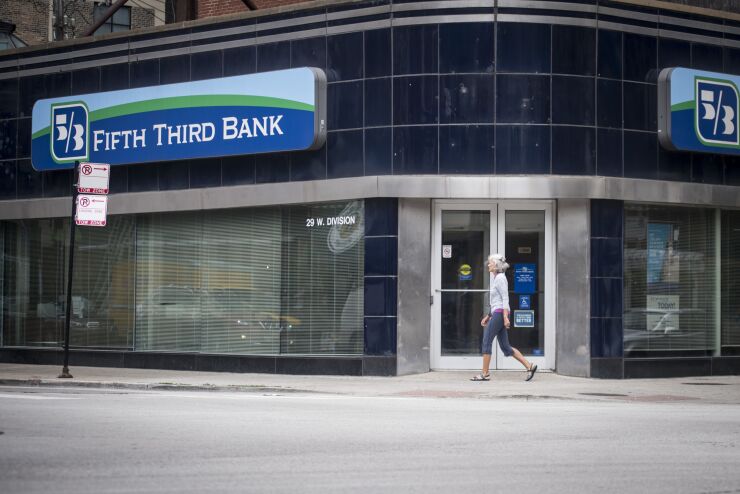Fifth Third Bancorp says the early results from its recent acquisition of a health care-focused fintech lender are better than expected.
Provide, which offers financing to dental, medical, veterinary and optometry practices, originated $75 million in new loans last month, Fifth Third said Wednesday. As a result, the Cincinnati bank has increased its estimate for Provide’s loan production next year from $1 billion to $1.2 billion.
“Their monthly volumes in August were ahead of expectations,” Fifth Third Chief Financial Officer Jamie Leonard said at the Barclays Financial Services Conference, which was hosted virtually. “They’re well ahead of the annual pace of $700 million for this year.”

A number of banks have recently waded into health care finance. KeyCorp launched
Fifth Third first invested in Provide in 2018 and began funding loans through the company’s platform last year. The $205 billion-asset bank completed
Provide specializes in lending to health care professionals who are seeking to establish or grow their practices. Its borrowers are often relatively young and have significant student loan debt.
One major draw of the deal for Fifth Third is the ability to market its other products, including mortgages and wealth management offerings, to Provide’s existing borrowers.
Fifth Third said Wednesday that it plans to add more sales staff, including a veterinary practice leader, to support Provide’s stronger than expected growth.
Fifth Third also said that its outlook for the third quarter improved slightly from its most recent earnings call in July. While commercial line utilization rates have remained essentially flat from the second quarter, loan production and total commitments are growing, particularly in the bank’s newer Southeastern markets, executives said.
The outlook for fee income has also improved, driven by growth in fees from Fifth Third’s capital markets business and its wealth and asset management unit, as well as more mortgage fee revenue than had been expected.
Fifth Third
“The thing I'm most pleased about strategically is that we’re getting the growth from value-added services,” he said. “We have been pretty deliberate in weaning ourselves off from consumer deposit fees because we did not believe they were sustainable competitively.”





